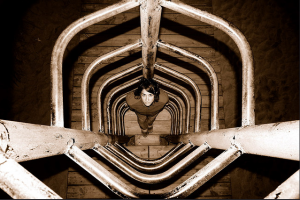By Cecilia Bianco, July 14 2014
 Almost 70,000 teens are incarcerated on any given day. Among incarcerated young girls with a life sentence, 77 percent have reported sexual abuse. Author Nicholas Kristof gives insight into this issue in a recent New York Times article, referencing the story of “Jane Doe” who has spent her life in and out of the juvenile justice system.
Almost 70,000 teens are incarcerated on any given day. Among incarcerated young girls with a life sentence, 77 percent have reported sexual abuse. Author Nicholas Kristof gives insight into this issue in a recent New York Times article, referencing the story of “Jane Doe” who has spent her life in and out of the juvenile justice system.
Both at home and in the juvenile system, Jane suffered years of sexual abuse and violence. After two months of isolation in an adult prison, Jane was moved to a girls’ detention center in Middletown, Conn., with the goal to provide her care that will ideally lead to placement in a loving foster-care family, which is what those around her know she needs:
“All I wanted was someone to tell me they loved me, that everything would be all right,” Jane says in the affidavit. “But that never happened.”
Kristof emphasizes that Jane’s story is a prime example of a larger issue within the juvenile justice system:
“We systematically over-rely on the criminal justice toolbox to deal with youths, rather than on social services or education. The United States incarcerates children at a rate that is 10 or 20 times higher than in some other industrial countries.”
Kristof, among other experts, believe stories like Jane’s can be prevented through programs that provide stability, education and safety to at-risk children from a young age. Programs that focus on rehabilitation rather than incarceration. Programs like Reclaiming Futures.
Image from Flickr Creative Commons User Carlospics
Topics: Juvenile Justice Reform
Updated: February 08 2018
